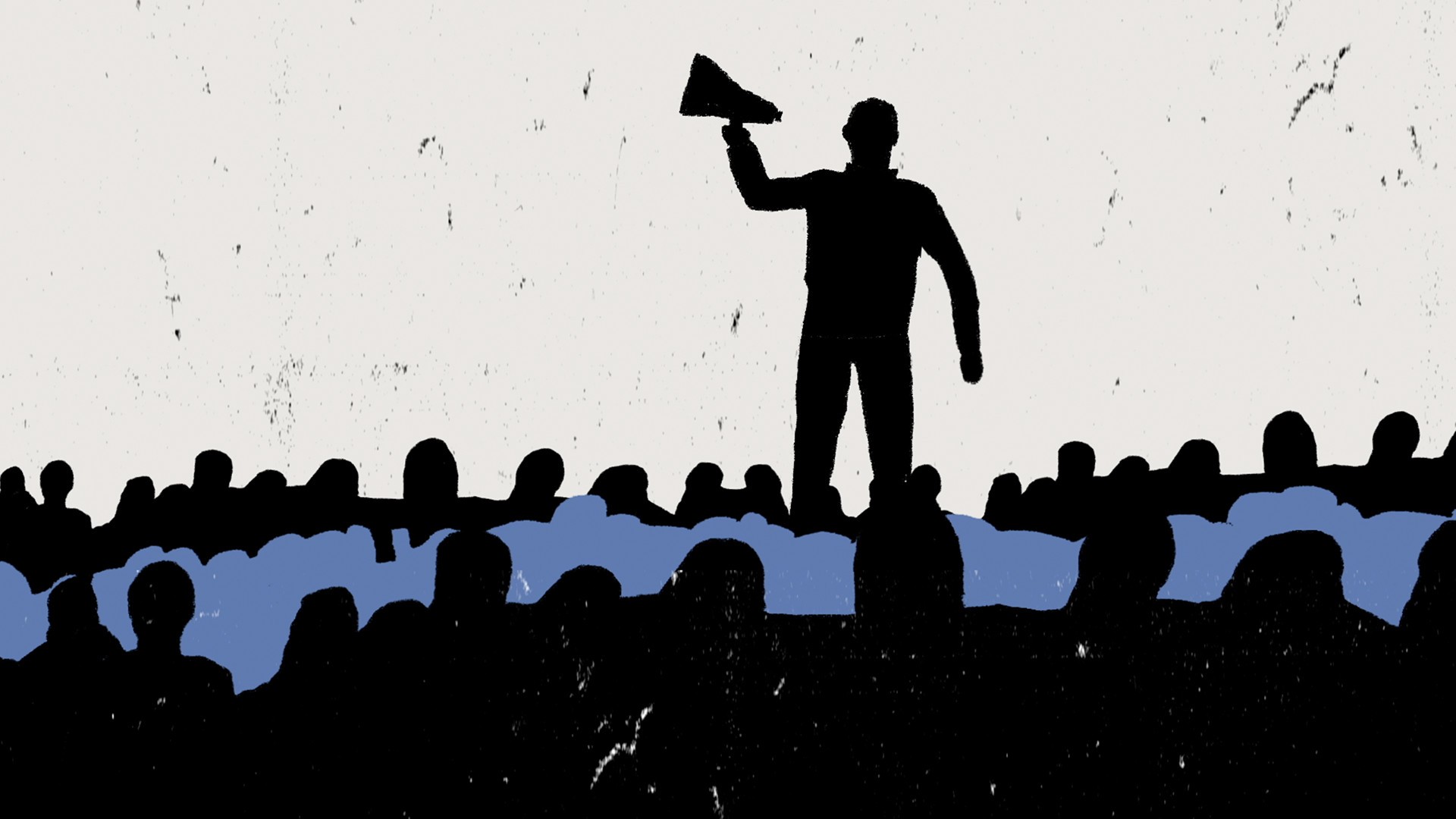Some say post-election America was when the country woke up, showed up, and has hit the ground in civil dissent. But as protesters gathered in public spaces, streets, and outside of government buildings to protest a range of issues from equal rights to protecting confederate monuments, legislators from Oregon to North Dakota have been hard at work in city and state chambers formulating legislation to crackdown on public protest and constitutionally protected rights to assembly."What we witnessed this year was a nationwide trend of anti-protest bills being proposed across more than 20 states," Vera Eidelman, the William J. Brennan Fellow with the ACLU Speech, Privacy, and Technology Project told VICE Impact. "This is unprecedented in the 21st century."At least four states have already given the thumbs up to anti-protest legislation, and a handful of others are still weighing their options in special sessions and the last few days of voting periods, according to research from the ACLU.
Check out more videos from VICE:
Take Oklahoma's HB 1123, which targets protesters as individuals who "willfully trespass." Under this law, passed in May, anyone who enters infrastructural spaces including controversial natural gas, crude oil, and petroleum plants may be subject to six months of jail time and a fine of at least $1,000. Here's looking at you, environmental activists.And that's just for setting foot on private property. Add property damage or tampering, and a misdemeanor charge jumps to a felony hit complete with a $100,000 fine.But perhaps most concerning is a clause in the bill which makes it clear that if an organization is "found to be a conspirator" with an individual trespasser, the fine is increased tenfold. That's right. In the state of Oklahoma, an organization can face a fine of up to $1 million for supporting a protester at a fracking facility, chemical plant, or other space.In South Dakota, SB 176 fights protests by specifying that law enforcement may prevent the assembly of 20 or more people, "if the prohibition is necessary to preserve the undisturbed use of the land… or if the land may be damaged by the activity."Two so-called "Blue Lives Matter" laws have also made their way through legislative chambers and onto the streets of Louisiana and Kentucky, and dozens more have been introduced across the country. Under these laws, any act of violence against a law enforcement officer or first responder may be categorized as a hate crime with increased penalties and jail time. Critics see this as a tone-deaf accompaniment to the ongoing national crisis of police brutality, which in many recent cases goes off without hate crime treatment despite growing evidence to support a connection between law enforcement violence and race relations. The Blue Lives Matter movement kicked off shortly after the murder of two NYC police officers but is largely seen as a direct response to the Black Lives Matter movement, thus fueling increased division between law enforcement and activists aiming to stop police brutality against the African American community.READ MORE: The VICE Impact Guide to the People's Climate MarchKeep a sharp eye out going forward. While most states are out of session, eleven are yet to cast their final votes, meaning that more anti-protest legislation could be on its way in your own state. Check out the ACLU's interactive Anti-Protest Bills map to keep tabs on what's moving through your state legislature. You can also cross-reference any bill with sites like ballotpedia and govtrack to gain a better understanding of active and potential laws.And stand up for your rights. The best way to move against anti-protest laws is to exercise your constitutional right to assemble in dissent."This topic matters because it strongly affects people's ability to speak truth to power and to decent and make the change they really want to make through pressuring their legislators, and through coming together and expressing their views," Eidelman said. "We should be celebrating the fact that people have come out in such numbers and with such passion when they want to speak out, but instead of doing that, our legislators are trying to clamp down. And that's a serious problem that's really at the gut and the center of democracy."
Advertisement
And it may be tough to tell, because anti-protest legislation doesn't always smack you in the face with blatant constitutional disregard. Instead, the legislation often avoids directly addressing protesters and public assembly, choosing to use terms such as "public disturbance," and "obstruction" to increase penalties for activities that are already considered illegal, such as trespassing or obstructing traffic."The way that a number of these bills were drafted, they are basically making things that were already illegal, more punishment-prone. And that smacks of an anti-protest ambiance," Eidelman said. "Basically, why make something that's already illegal more illegal except to chill activity by individuals who are dissenting.""The way that a number of these bills were drafted, they are basically making things that were already illegal, more punishment-prone. And that smacks of an anti-protest ambiance."
Advertisement
Check out more videos from VICE:

Take Oklahoma's HB 1123, which targets protesters as individuals who "willfully trespass." Under this law, passed in May, anyone who enters infrastructural spaces including controversial natural gas, crude oil, and petroleum plants may be subject to six months of jail time and a fine of at least $1,000. Here's looking at you, environmental activists.And that's just for setting foot on private property. Add property damage or tampering, and a misdemeanor charge jumps to a felony hit complete with a $100,000 fine.But perhaps most concerning is a clause in the bill which makes it clear that if an organization is "found to be a conspirator" with an individual trespasser, the fine is increased tenfold. That's right. In the state of Oklahoma, an organization can face a fine of up to $1 million for supporting a protester at a fracking facility, chemical plant, or other space.In South Dakota, SB 176 fights protests by specifying that law enforcement may prevent the assembly of 20 or more people, "if the prohibition is necessary to preserve the undisturbed use of the land… or if the land may be damaged by the activity."
A North Dakota law could go even further by specifying that the state Attorney General can appoint ad hoc special agents, which are basically temporary agents from other jurisdictions, for a "specific law enforcement purpose." At large protests, this could mean seriously upped police presence, some of whom may not know the area or political climate. Talk about bad news for the constitutional right to assemble.The best way to move against anti-protest laws is to exercise your constitutional right to assemble in dissent.
Advertisement
